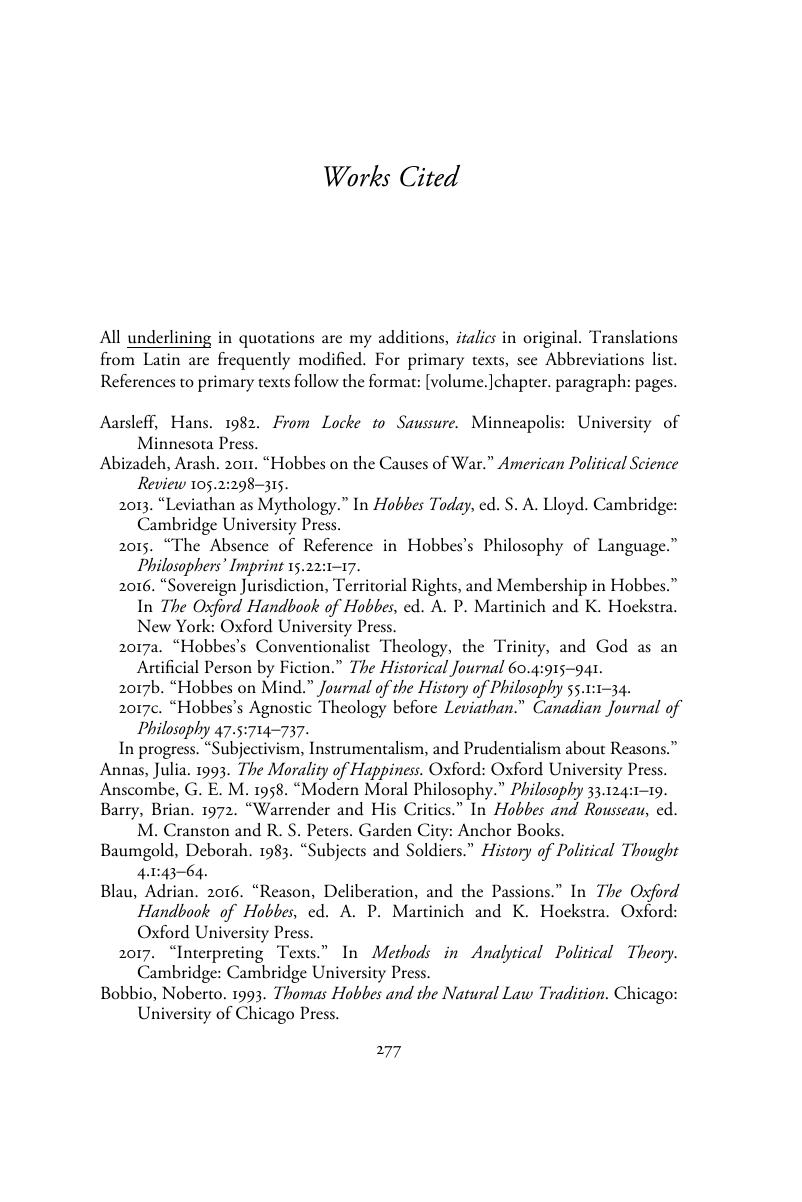Works Cited
Published online by Cambridge University Press: 18 October 2018
Summary

- Type
- Chapter
- Information
- Hobbes and the Two Faces of Ethics , pp. 277 - 285Publisher: Cambridge University PressPrint publication year: 2018
23 April 2024: We are investigating problems with ecommerce on Cambridge Core. We apologise for any inconvenience and hope to have full functionality restored shortly.

Published online by Cambridge University Press: 18 October 2018

To save this book to your Kindle, first ensure coreplatform@cambridge.org is added to your Approved Personal Document E-mail List under your Personal Document Settings on the Manage Your Content and Devices page of your Amazon account. Then enter the ‘name’ part of your Kindle email address below. Find out more about saving to your Kindle.
Note you can select to save to either the @free.kindle.com or @kindle.com variations. ‘@free.kindle.com’ emails are free but can only be saved to your device when it is connected to wi-fi. ‘@kindle.com’ emails can be delivered even when you are not connected to wi-fi, but note that service fees apply.
Find out more about the Kindle Personal Document Service.
To save content items to your account, please confirm that you agree to abide by our usage policies. If this is the first time you use this feature, you will be asked to authorise Cambridge Core to connect with your account. Find out more about saving content to Dropbox.
To save content items to your account, please confirm that you agree to abide by our usage policies. If this is the first time you use this feature, you will be asked to authorise Cambridge Core to connect with your account. Find out more about saving content to Google Drive.